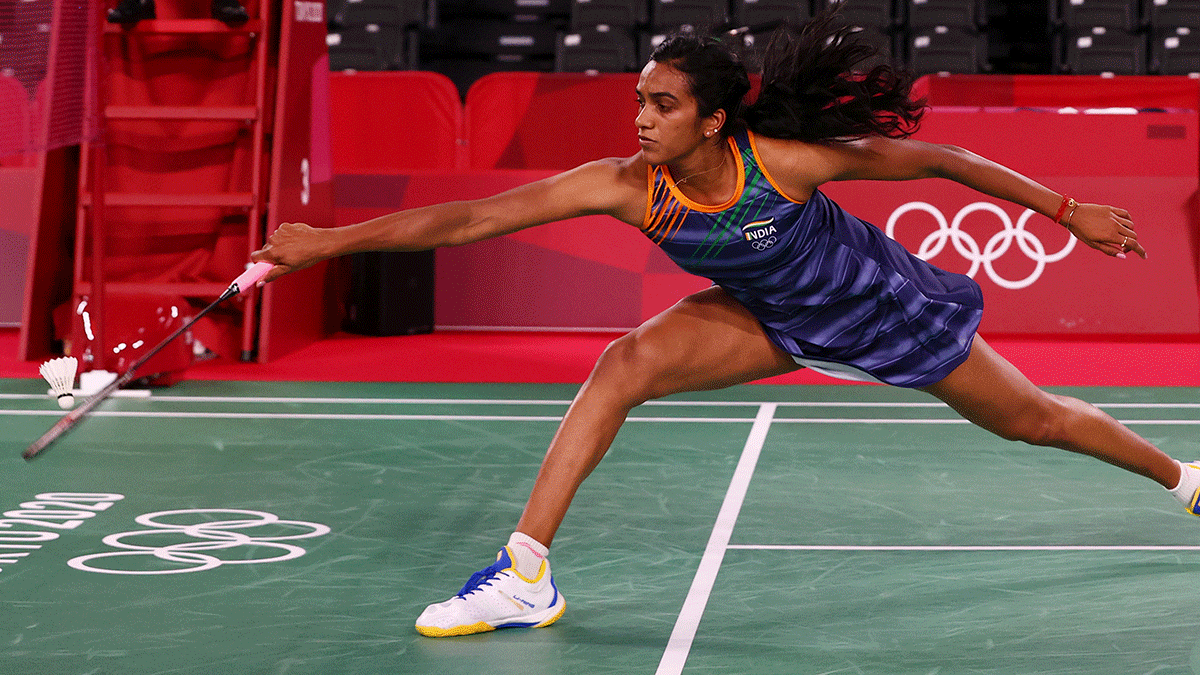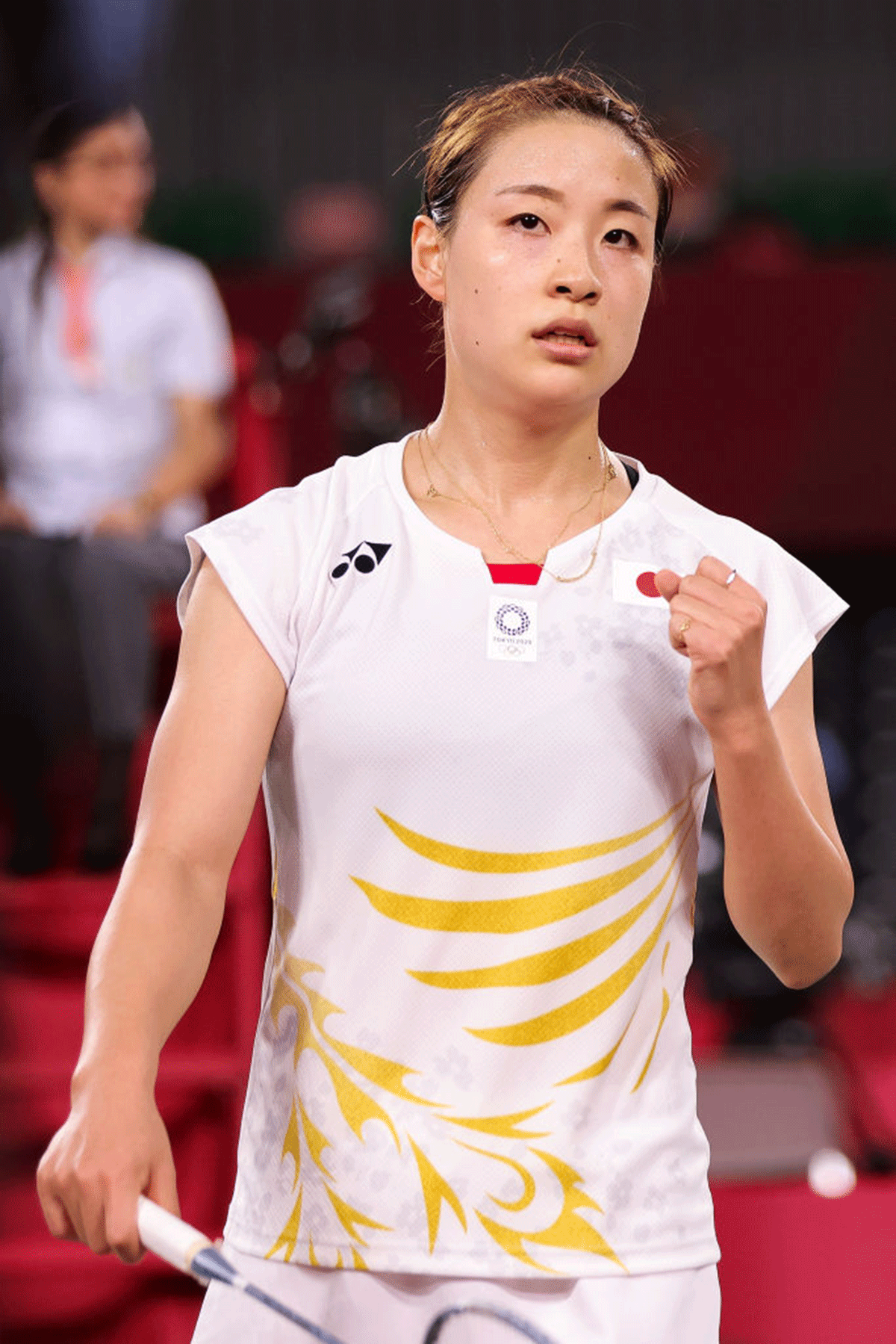 | « Back to article | Print this article |
'This is not a normal competition, the Olympics is really special -- I need to keep encouraging myself to have a strong mind'

Athletes at the Tokyo Games are chasing Olympic glory in tremendously strained conditions that have kept them isolated from family, friends and, importantly, spectators as they battle for what could be the biggest titles of their careers.
In badminton, players are resorting to yelling, meditation, or laser-like focus whatever it takes to help them cope with the stress of expectation and no fans to fire them up.
While the top names in badminton haven't openly discussed mental health and wellbeing issues in the way that gymnast Simone Biles and tennis player Naomi Osaka have done of late, Olympic expectations nonetheless weigh heavily on some.
"Today, at the very beginning, I found it hard to breathe so I shouted out a lot to get the air in," Japan's Nozomi Okuhara, badminton women's singles world number three, said on Wednesday after she made quick work of Canada's Michelle Li in a tidy 21-9, 21-7 match.
Okuhara got off to a rocky start against Germany's Yvonne Li last week in her first Olympic match without a crowd. Though Okuhara prevailed, beating Li 21-17, 21-4, she cried afterwards, saying she "felt some difficulty and was suddenly scared and emotional."
"I couldn't control my feelings at the beginning of the game and that's why I lost some points," Okuhara said.
"This is not a normal competition, the Olympics is really special -- I need to keep encouraging myself to have a strong mind."

Performance anxiety had a hand in costing men's singles world number one Japan's Kento Momota his Olympic dream on Wednesday, when he was knocked out by a player ranked 37 spots below him.
"I didn't think I was moving wrong or weak or anything," Momota said afterwards.
"After the opponent reached 11 points I couldn't recover, I couldn't motivate myself."
Personal struggles during the pandemic have also had some bearing on athletes' mental states. Momota, for instance, and Denmark's Viktor Axelsen both contracted COVID-19 prior to the Games.
"It's always there, the pressure, the responsibilities -- a lot of people are expecting a lot from me," India's PV Sindhu told Reuters.
The Rio silver medallist, who was swamped by reporters at the Musashino Forest Sport Plaza venue for the Tokyo tournament, is celebrated in badminton-mad India as the country's best chance of medal success.
"We see a lot of things happening on social media and sometimes I just want to let go of everything -- I just meditate for a bit," he said.
"I've been doing this for a very long time and it helps keep me going and keeps me calm."
For some, coping with stress is about staying laser-focused.
"We don't think too much about who we're facing," Malaysia's Aaron Chia said after he and men's doubles partner Soh Wooi Yik scored a major upset on Thursday, knocking out world ranking leaders Marcus Fernaldi Gideon and Kevin Sanjaya Sukamuljo from Indonesia.
"The more we can focus on ourselves, the more we can perform well."
